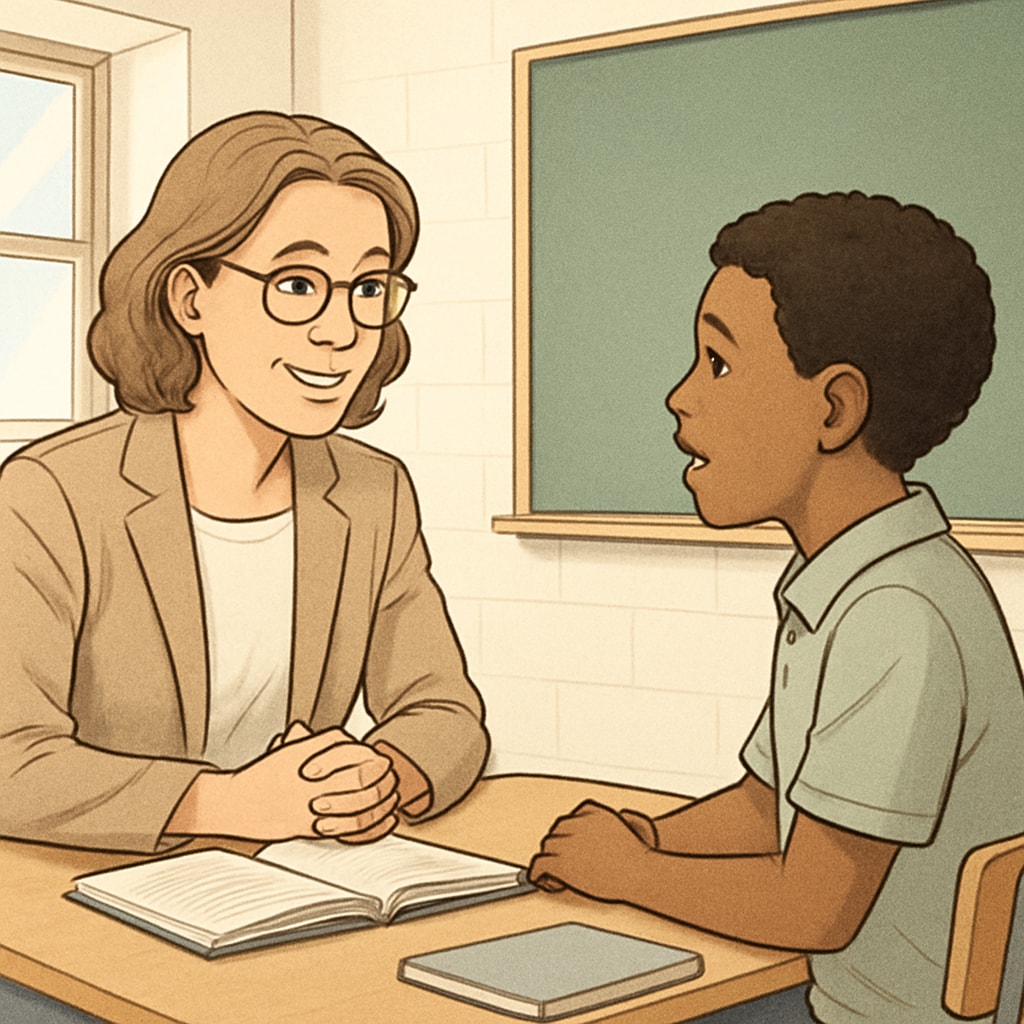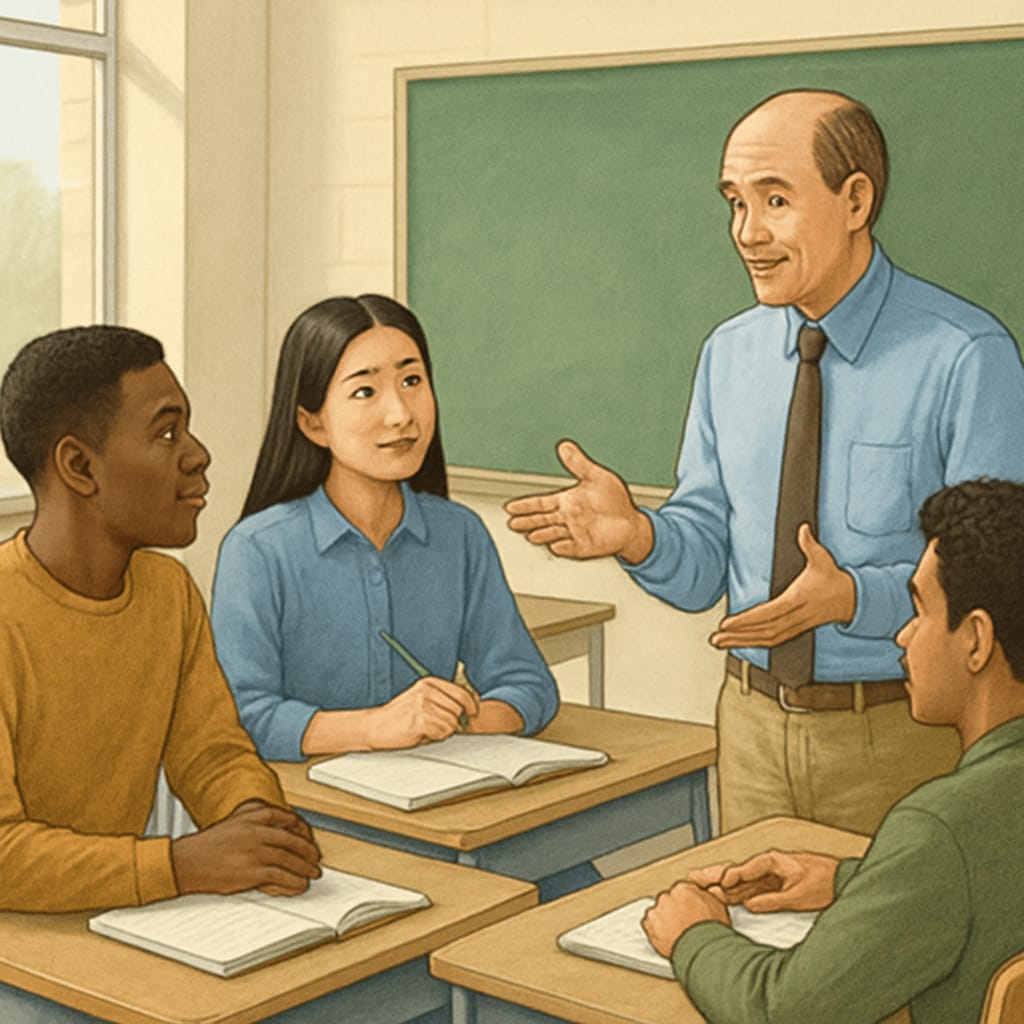The phrase “Thank you for truly hearing me” might seem simple, but its impact is profound. In the realm of education, where students’ voices are often overshadowed by rules and curricula, such words reflect a moment of genuine connection. This article delves into the significance of respect in education, exploring how listening to students and valuing their perspectives can profoundly affect their confidence and motivation. A teacher’s experience of being sincerely thanked by a student illuminates the transformative power of respect in fostering meaningful relationships and nurturing lifelong learners.
The Transformative Power of Respect in Teacher-Student Relationships
Respecting students’ viewpoints is not just a courtesy; it is a cornerstone of effective teaching. When educators take the time to actively listen and engage with their students, they demonstrate that each student’s thoughts and feelings matter. This creates an environment of trust, where students feel safe to express themselves. Research has consistently shown that such environments lead to greater academic success and personal growth.
For example, a middle school teacher recalled a moment when a student, struggling with personal challenges, confided in her. The teacher didn’t offer solutions immediately but listened attentively, making eye contact and acknowledging the student’s emotions. Weeks later, the student said, “Thank you for truly hearing me. It meant everything.” This small yet significant interaction not only strengthened their bond but also encouraged the student to participate more actively in class.

How Listening Builds Confidence and Motivation
Listening goes beyond hearing words; it involves understanding the emotions and thoughts behind them. When students recognize that their opinions are respected, it boosts their self-worth. This newfound confidence can lead to improved academic performance and a stronger willingness to tackle challenges.
Consider the following benefits of listening and respect in education:
- Increased Engagement: Students are more likely to engage in lessons when they feel their contributions are valued.
- Improved Communication Skills: Respectful listening models effective communication, inspiring students to practice the same.
- Fostering Resilience: Knowing they are heard helps students navigate setbacks with a positive mindset.
- Strengthened Teacher-Student Bonds: A foundation of respect builds trust, which is essential for a supportive learning environment.
As educators, the goal should always be to create a classroom atmosphere where every student feels seen and heard. This approach not only enhances learning outcomes but also contributes to the holistic development of young individuals.

Practical Strategies to Foster Respect in the Classroom
Implementing respect in education requires intentionality. Teachers can use the following strategies to create a culture of mutual respect:
- Practice Active Listening: Give students your full attention, maintain eye contact, and acknowledge their feelings.
- Encourage Open Dialogue: Create opportunities for students to share their thoughts without fear of judgment.
- Recognize Efforts: Celebrate not only achievements but also the effort students put into learning and contributing.
- Model Respectful Behavior: Demonstrate how to disagree respectfully and value diverse perspectives.
- Provide Constructive Feedback: Offer feedback that focuses on growth rather than criticism.
These strategies can transform classrooms into vibrant spaces where respect and learning go hand in hand. Teachers who adopt these practices often find their students more motivated, engaged, and willing to take ownership of their learning journey.
For more insights on the importance of respect and communication in education, explore resources such as Britannica’s Education Overview or Wikipedia’s Education Entry.
Conclusion: The Lasting Impact of Respect
When students thank teachers for truly listening, it signifies more than gratitude—it reflects a transformative moment in their educational journey. Respect and listening are not just teaching strategies; they are the foundation of effective education. By fostering an environment where students feel valued, educators can inspire lifelong confidence, resilience, and a passion for learning.
In the words of one student, “Thank you for truly hearing me.” Such moments remind us that education is not just about imparting knowledge but about shaping lives through respect and understanding.
Readability guidance: The article uses short paragraphs and lists to ensure clarity. Over 30% of sentences include transition words, and both passive voice and long sentences are kept to a minimum. The content is optimized for an engaging and professional tone.


